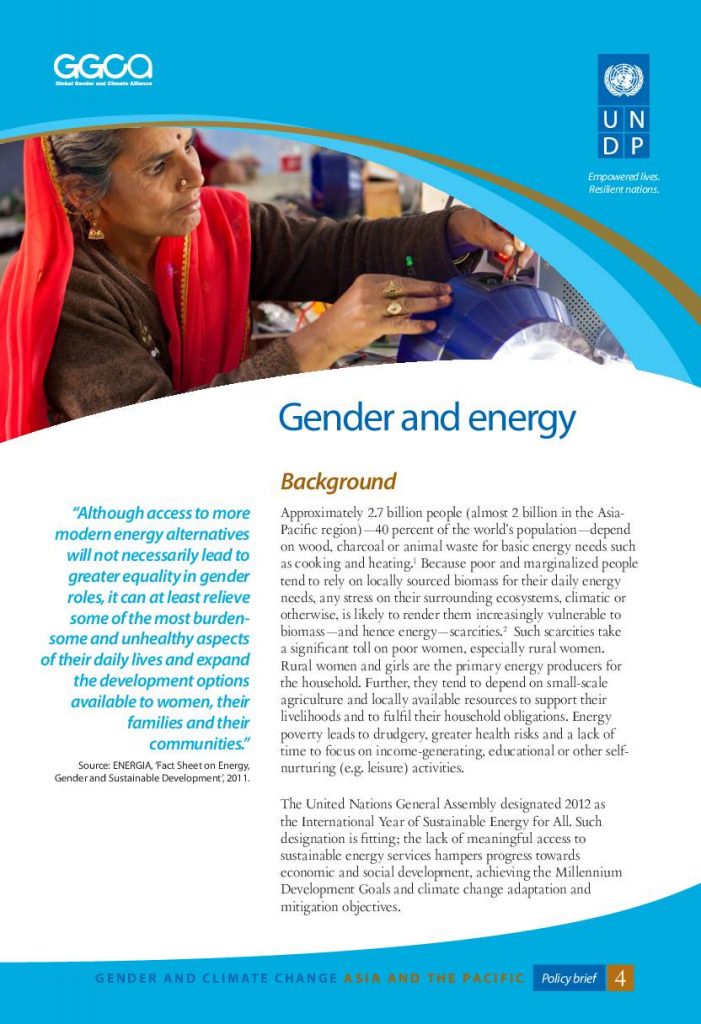Approximately 2.7 billion people (almost 2 billion in the Asia- Pacific region)—40 percent of the world’s population—depend on wood, charcoal or animal waste for basic energy needs such as cooking and heating.1 Because poor and marginalized people tend to rely on locally sourced biomass for their daily energy needs, any stress on their surrounding ecosystems, climatic or otherwise, is likely to render them increasingly vulnerable to biomass—and hence energy—scarcities.2 Such scarcities take a significant toll on poor women, especially rural women. Rural women and girls are the primary energy producers for the household. Further, they tend to depend on small-scale agriculture and locally available resources to support their livelihoods and to fulfil their household obligations. Energy poverty leads to drudgery, greater health risks and a lack of time to focus on income-generating, educational or other self- nurturing (e.g. leisure) activities.
The United Nations General Assembly designated 2012 as the International Year of Sustainable Energy for All. Such designation is fitting; the lack of meaningful access to sustainable energy services hampers progress towards economic and social development, achieving the Millennium Development Goals and climate change adaptation and mitigation objectives.

Follow us on: